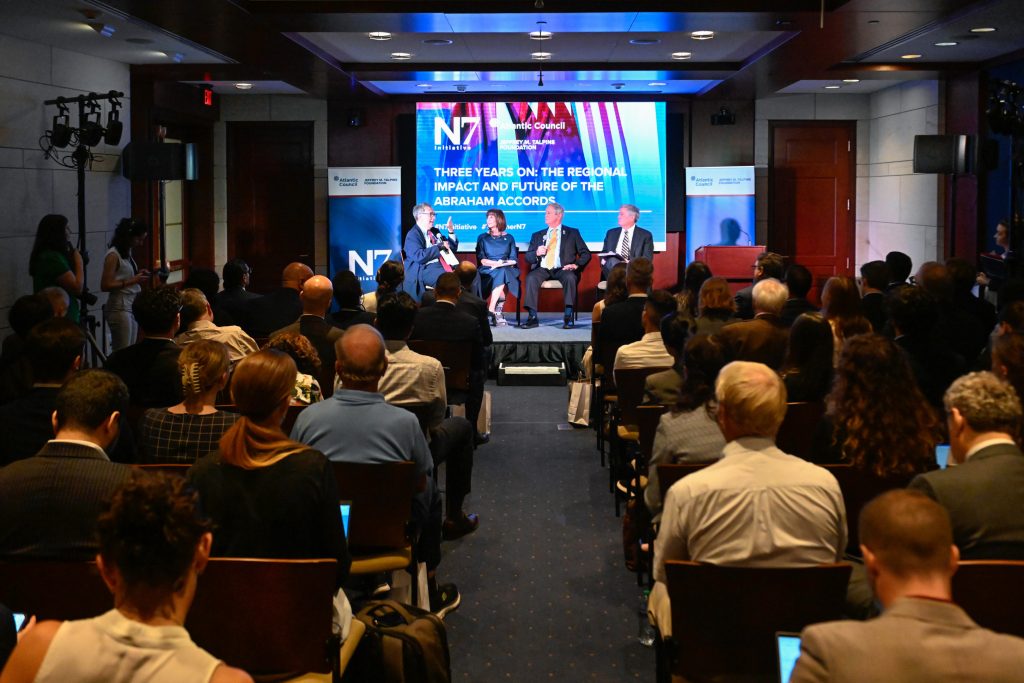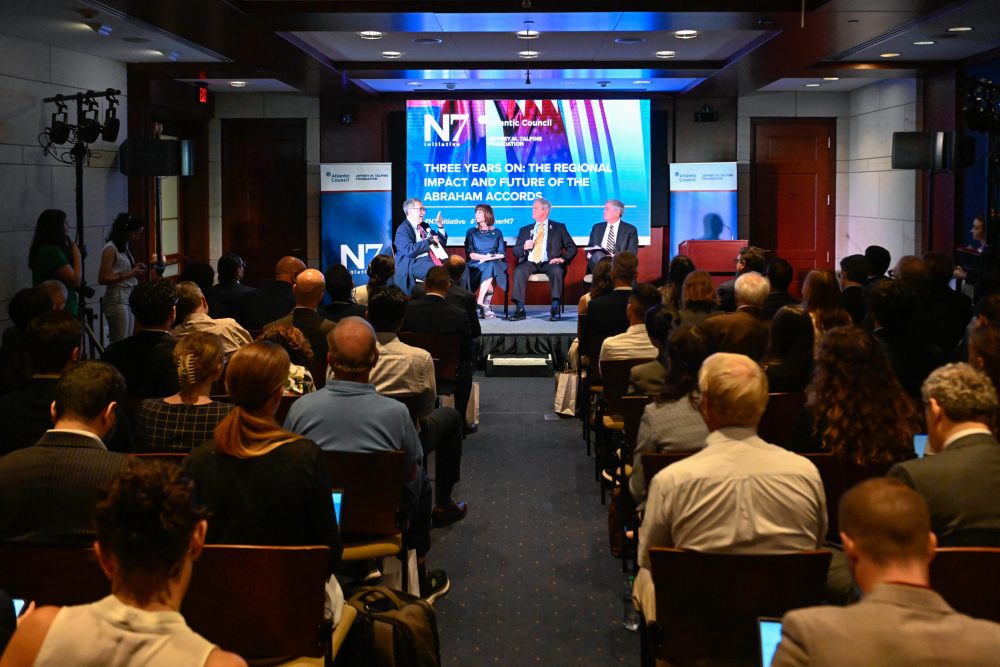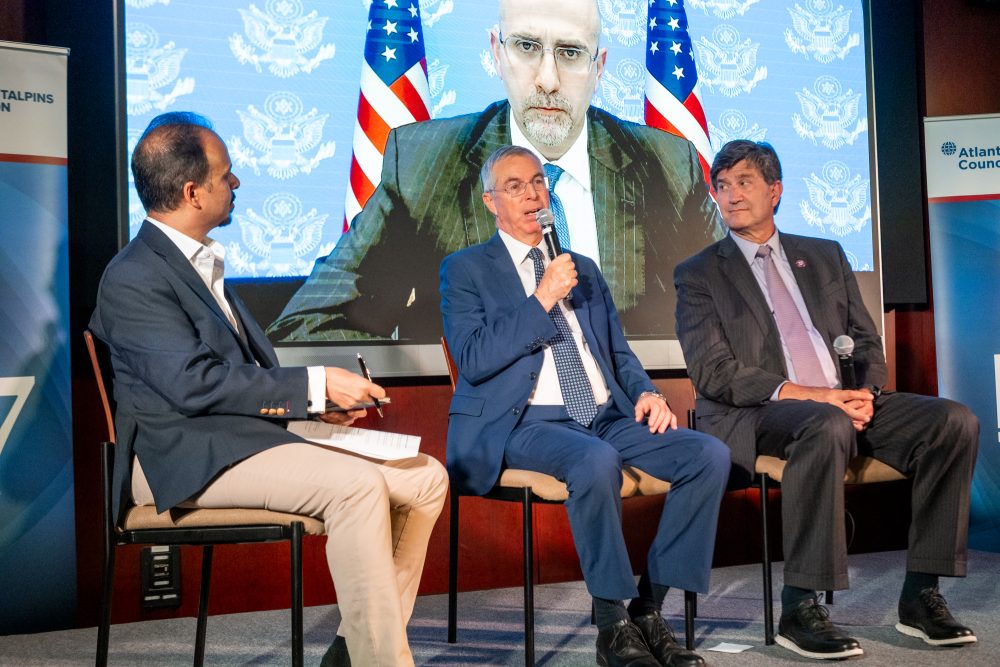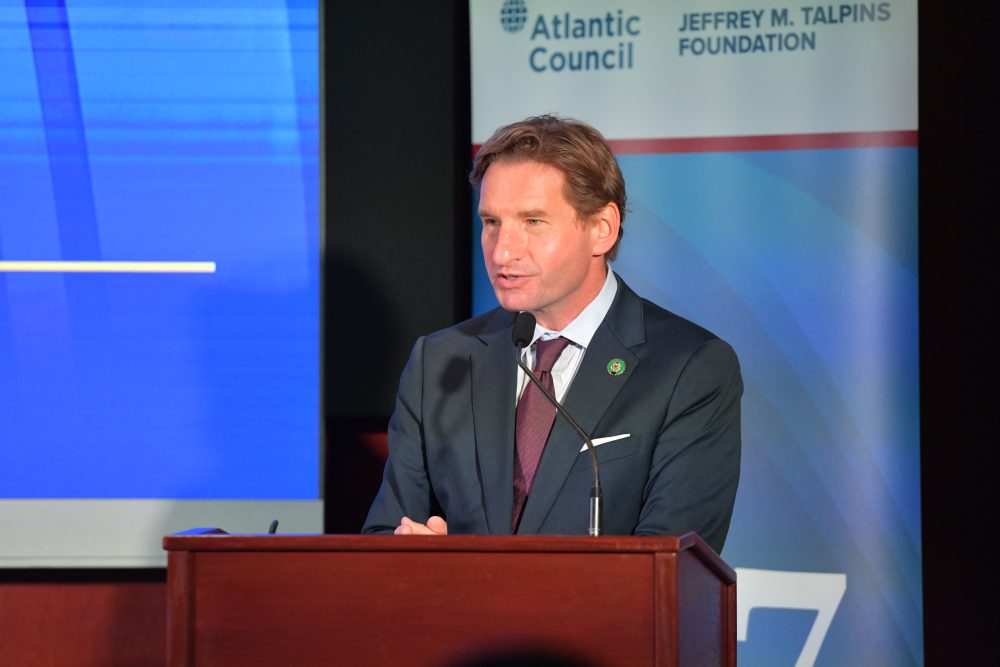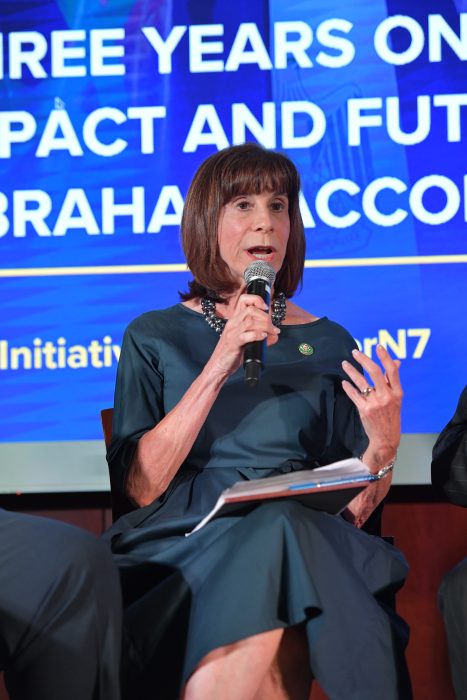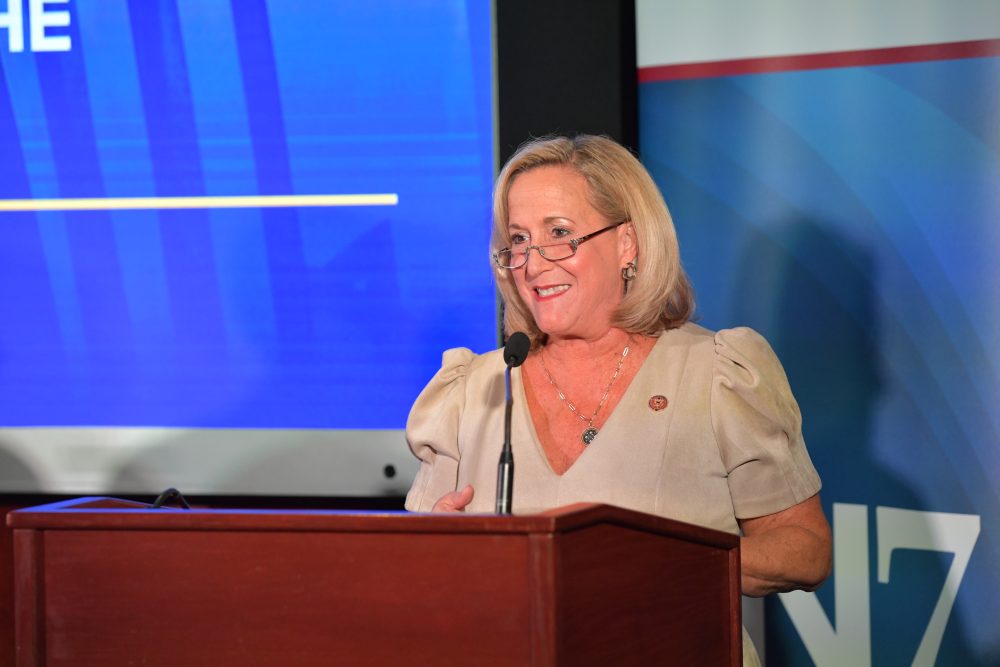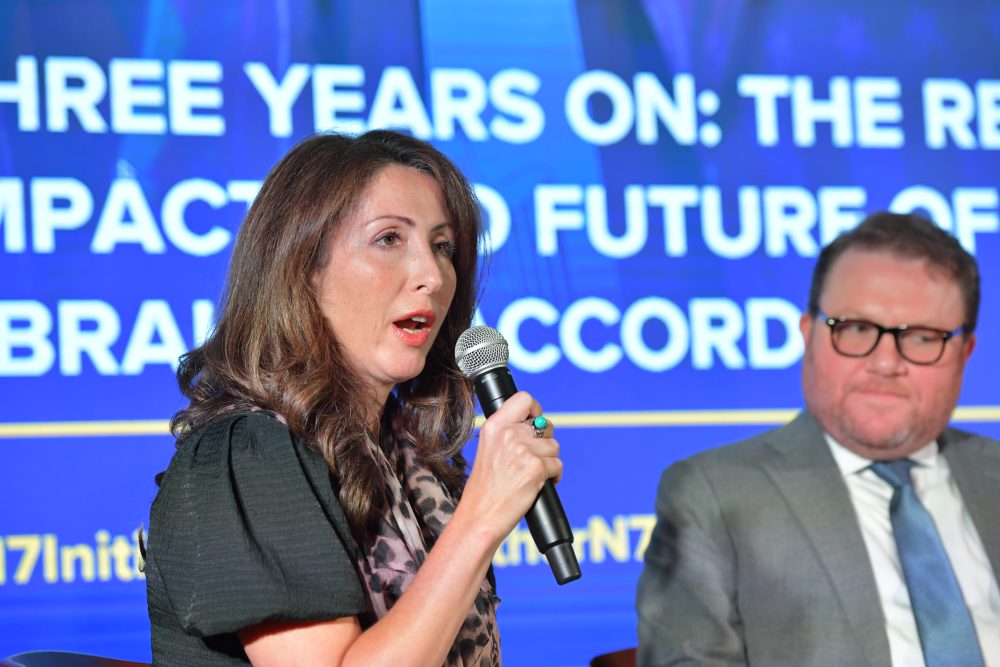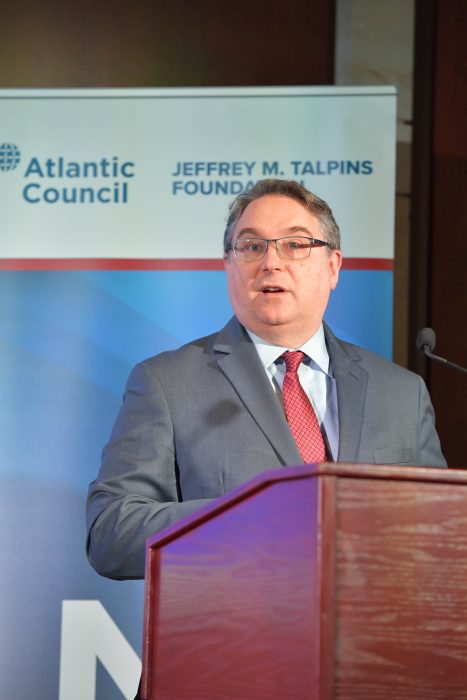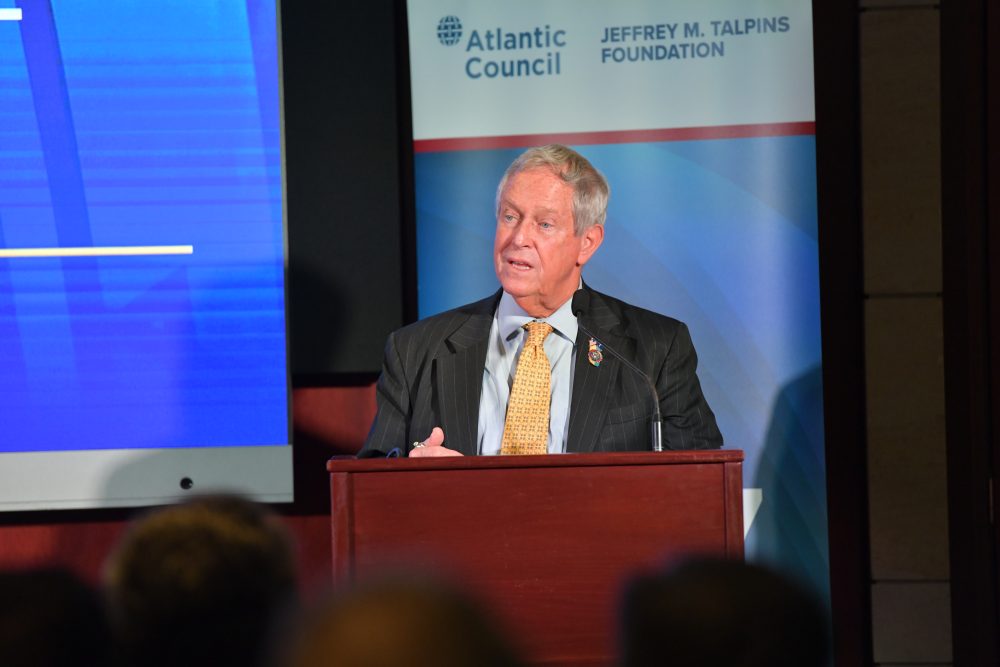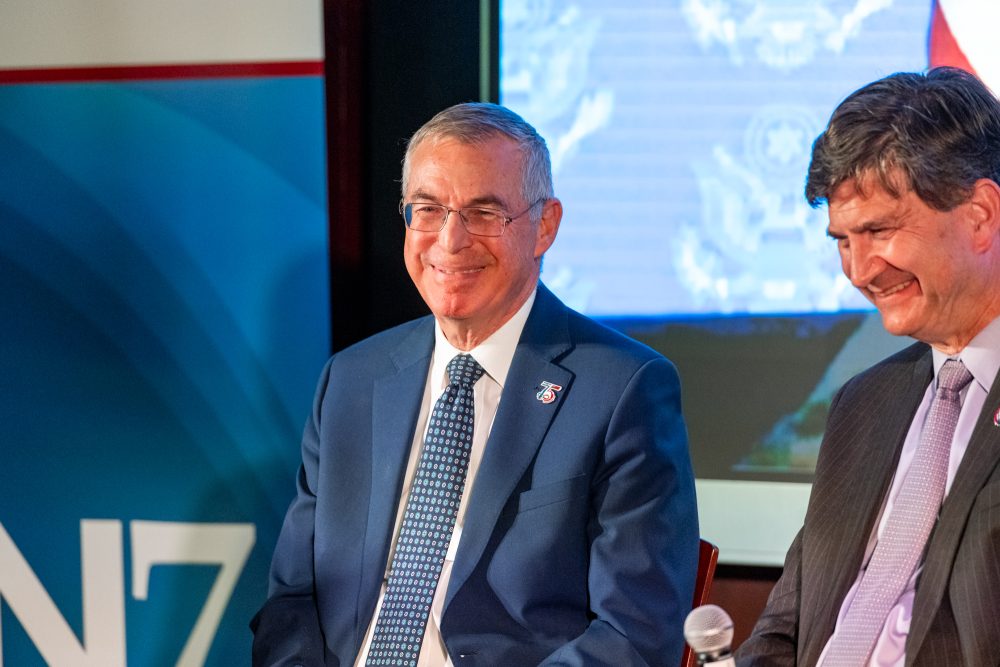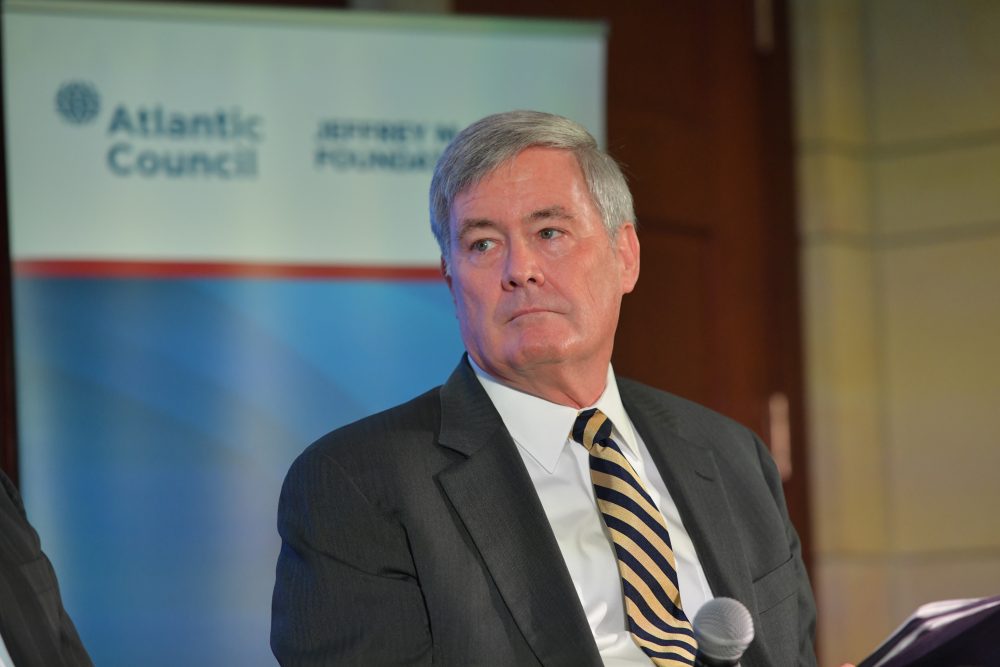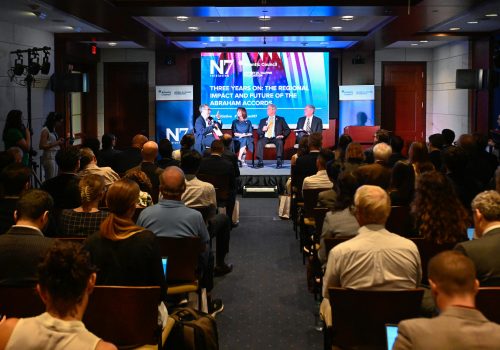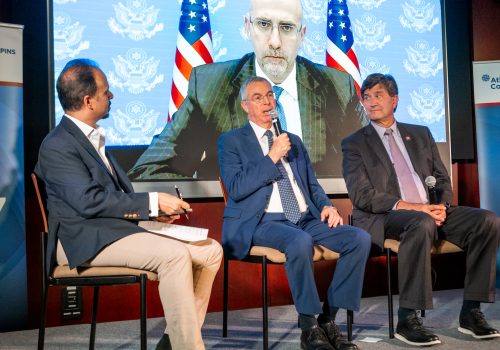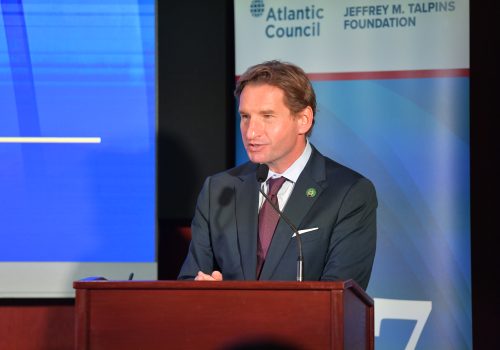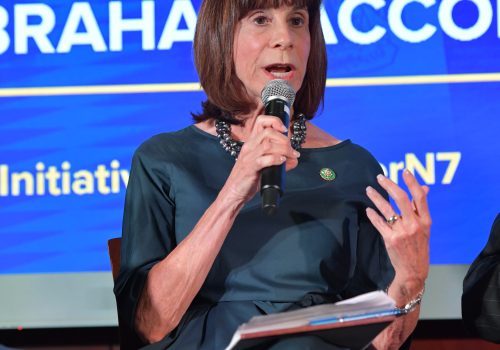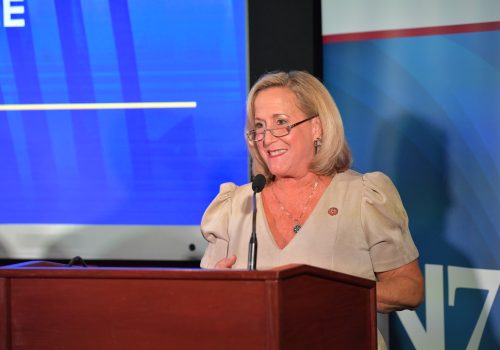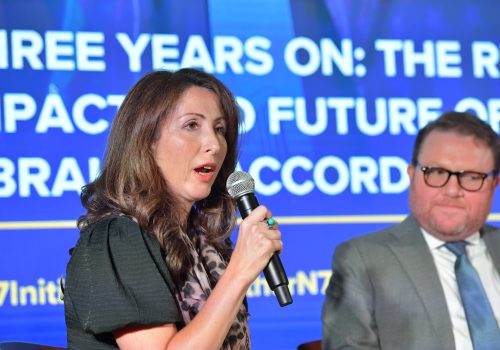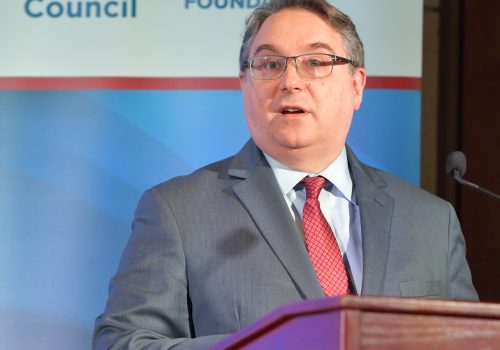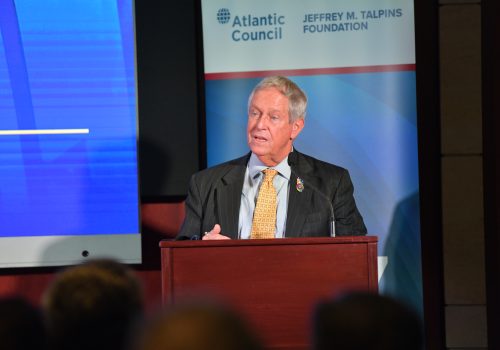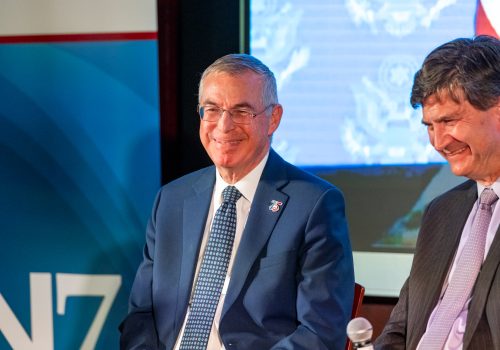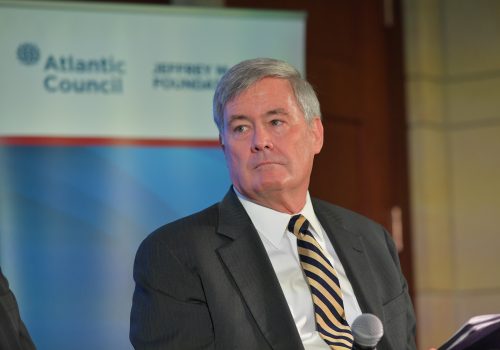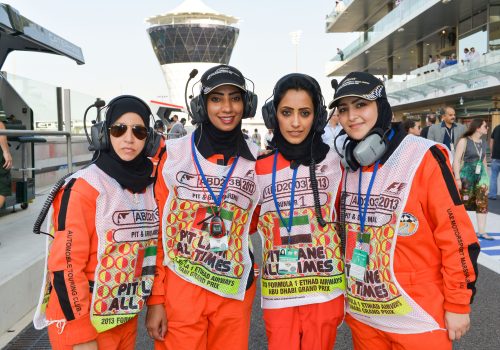
Three years after the signing of the 2020 Abraham Accords—a series of bilateral agreements between Arab countries and Israel—there’s a “window of opportunity” to add Saudi Arabia to the roster, said Israeli Ambassador to the United States Michael Herzog. “If we can get Saudi Arabia to join that trend, it will be groundbreaking and no less historic than the Abraham Accords.”
Herzog gave his take on the possible Saudi-Israeli peace agreement at an event at the US Capitol on Wednesday hosted by the N7 Initiative, a collaboration between the Atlantic Council and the Jeffrey M. Talpins Foundation. The event convened Middle East officials and US policymakers—including members of the US House of Representatives who had recently returned from a trip that included visits to Israel and Saudi Arabia.
US Rep. Dean Phillips (D-MN) recalled having seen in Saudi Arabia “the potential for peace and prosperity and security in a region that has been devoid of it for so long.” Despite that great potential, Terry Wolff of the White House National Security Council explained, the deal is still in the discussion phase—with real negotiations not yet under way—making the timeline uncertain.
Rep. Kathy Manning (D-NC) explained that Saudi Arabia’s joining would “help create a bulwark against Iran,” so “anything we can do to create relationships and stability and maybe cause Iran to be more hesitant in some of its malign activity would be a benefit for all of us.”
But the expansion of the Accords is about more than a possible Saudi-Israeli deal. Here are more highlights from the discussion among officials at Wednesday’s event about how to deepen integration and cooperation in the region.
Watch highlights from the event
Photo highlights
Three years of progress
- The “Abraham Accords launched a new era for the Middle East,” one that promises a “brighter future for all,” said Oren Eisner, president of the Jeffrey M. Talpins Foundation and Family Office. For Rep. Cathy McMorris Rodgers (R-WA), who is also a co-chair of the House Abraham Accords Caucus, the Accords marked the “beginning of a new journey” towards “creating a better, safer, more prosperous world.”
- In contrast to the 9/11 attacks that happened almost exactly nineteen years earlier, the Abraham Accords furthered a perspective “that sees the possibilities in the region,” said Rep. Bradley Schneider (D-IL), a co-chair of the House Abraham Accords Caucus. It’s a worldview that contributes to building “bridges between peoples and countries to create opportunities for a lasting and true peace.”
- Shaikh Abdullah bin Rashid bin Abdullah Al Khalifa, the Bahraini ambassador to the United States, hailed the Accords for sparking security collaboration, economic activity, educational exchanges, and cultural connections. They “have demonstrated the best of humanity,” he said.
- Bahrain and the United Arab Emirates were the first signatories, followed later by Morocco and Sudan. The United States helped foster the agreements and has backed them since, including “robust” and bipartisan agreement in Congress, as Manning put it, and the Pentagon’s decision to move Israel from US European Command to US Central Command. The realignment was “enormously beneficial,” Wolff said. “It’s all about integrating better” and “deterrence.”
People-to-people ties
- Manning said that beyond security issues, it is important that Middle East partners work together on improving workforce participation, energy security, and water access. That “will take the focus off of issues of conflict” and put that focus “on areas where we can see the cooperation and growth of these countries together,” she said.
- “Already, the Accords have unleashed pent-up economic potential,” said Rep. Ann Wagner (R-MO), also a co-chair of the House Abraham Accords Caucus. She pointed to “record levels of tourism” in the region, the opening of new embassies and trade offices, and a rise in joint enterprises in fields like health care, agriculture, water management, education, and tech innovation—all topics that are the focus of joint working groups set up by six regional foreign ministers at the March 2022 Negev Summit.
- Rep. Joe Wilson (R-SC) said that the Accords are used to “facilitate startups and economic opportunity for young people,” specifically because of the role young people play in creating a better future. Engaging younger generations is also essential to the work of Aaron Kayek, the US State Department deputy special envoy to monitor and combat anti-Semitism: “Youth [who are] misinformed about their history or encouraged towards active incitement” cannot thrive, he said.
- The United States is not talking to these countries about anti-Semitism or democracy “because we are perfect, but in fact, it’s because we are not,” Kayek added. The idea, he said, is to “work together to solve these problems both here at home” and abroad.
- “The people-to-people element supports” what governments are trying to achieve, the US State Department’s Geoff Anisman explained, pointing to educational exchanges and a program that brought together Israelis and Bahrainis to talk about sports and culture. Dan Shapiro, senior advisor for regional integration at the State Department and the former director of the N7 Initiative, agreed that citizens will need to be involved in creating “real integration,” adding that “think tanks, the private sector, schools, hospitals, civic organizations, religious institutions, and other institutions,” also have a role to play.
- Rep. David Trone (D-MD), also a co-chair of the House Abraham Accords Caucus, added that bringing communities closer together and “forging genuine connections across countries and cultures” is key to achieving “lasting change.” Kayek agreed, saying that “it’s important to also bring the people along,” because “a cold peace with cold calculations on strategic interests,” only lasts so long.
Economy forward
- Yousef Al Otaiba, the United Arab Emirates’ (UAE) ambassador to the United States, explained how over the past three years, the UAE and Israel have had to build their relationship essentially from scratch. He said that he is not surprised at the rapidly growing bilateral trade between the countries, which is slated to reach three billion dollars by the end of this year; but he is surprised by “how quickly the two countries and societies have accepted each other culturally.”
- Otaiba and Rep. Don Bacon (R-NE) both advocated for an Abrahamic free trade zone. “America should help facilitate that,” Bacon said, because otherwise the void could be filled by countries such as China and Russia that “undercut our economic interests.”
- The officials pointed to the Negev Forum (which aims to further regional integration) and the I2U2 (a group including Israel, India, the UAE, and the United States) as mechanisms through which leaders can expand the benefits of the Accords. These groups, as Otaiba put it, are all working on nonpolitical issues including economic growth, infrastructure, climate mitigation and adaptation, and health care.
- For Shapiro, the I2U2 complements the Abraham Accords “by extending cooperation beyond the region,” to India. “That way, we can spread the benefits of the changing dynamics in the Middle East and North Africa to new partners as well.”
- Otaiba and Shapiro highlighted the new India-Middle East-Europe Economic Corridor project, announced at the recent Group of Twenty (G20) summit, to connect India to Europe via rails and waterways running through the UAE, Saudi Arabia, Jordan, and Israel. Infrastructure projects like these—and ones created by I2U2—are “the next phase of where the Abraham Accords [need] to go,” said Otaiba.
- When asked whether regional integration could help the Palestinian economy, Otaiba pointed out that the Abraham Accords bought “more space for diplomacy” between Israel and the Palestinian Territories. But, he added, “that has to come from the players in the region themselves.” Nevertheless, the State Department’s Chris Backemeyer said that the United States wants to make sure that Palestinians “are able to, over time, derive benefits” associated with the region’s prosperity growth.
- While the Negev Forum and its working groups aim to bring the benefits of the Abraham Accords to the region’s citizens in the short term, Shapiro laid out a more sweeping long-term goal: to build regional integration akin to “highly successful examples” like the Association of Southeast Asian Nations.
Katherine Walla is the associate director of editorial at the Atlantic Council.
Watch the full event
Further reading
Tue, Feb 7, 2023
The UAE and Israel have a history of strong female leadership. Women must take substantial roles in the next phase of the Abraham Accords.
MENASource By Marcy Grossman
To have a sustained and enduring peace in the region after the signing of the Abraham Accords, women must also be equally included and reflected in policy-making, decision-making, and programming.
Thu, Jan 26, 2023
People-to-people exchanges matter. They’re integral to nurturing the Abraham Accords.
MENASource By Richard LeBaron
This piece identifies some of the issues involved in creating a strong framework for a vital “Abraham Exchanges” program and proposes a few ideas on how to get it off the ground.
Thu, Dec 15, 2022
Cultural exchange can foster a peaceful coexistence in the Middle East
MENASource By
Cultural exchange is based on the will of individuals, groups, and nations to reach out to each other and better learn, or re-learn, to live together.
Image: The N7 Initiative hosted a timely event to commemorate the third anniversary of the Abraham Accords
